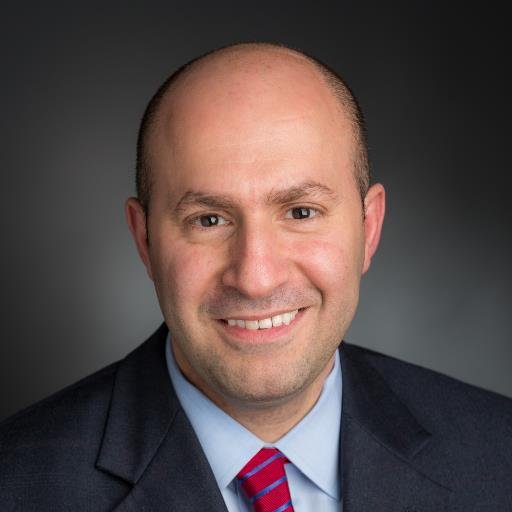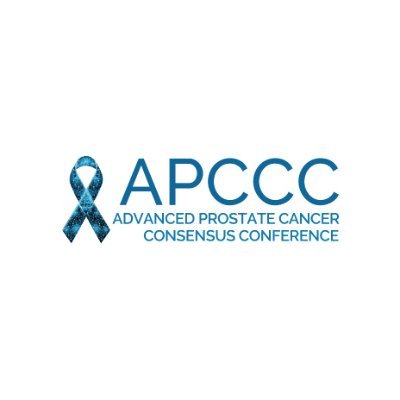
Scott Dehm
@scottdehm
Followers
1K
Following
446
Media
23
Statuses
370
Professor @UMNcancer studying steroid hormones, androgen receptors, and #ProstateCancer genomes. Apogee Enterprises Chair in Cancer Research . Views=mine.
Minneapolis, MN
Joined May 2011
It was a sheer pleasure to have @AdamSharpMedOnc here in Minnesota delivering a Cancer Center Seminar lecture about manipulation of the apoptosis pathway for prostate cancer therapeutics. Thanks @scottdehm for inviting and hosting him. Let the collaborations begin! @UMNCancer
2
3
23
Can anyone top the Halabi model for predicting survival in mCRPC? Yes! Dr Halabi does it again! See our ctDNA based clinical-genetic model in first line ARPI treatment out today in @EUplatinum: https://t.co/OOeFavZgG8
@scottdehm @DukeGUCancer @DukeCancer @PCFnews
0
4
15
Fascinating work by Chen et al in uncovering new metabolomics of SPOP-mutant prostate cancer, we review here @EAntonarakis @scottdehm
https://t.co/h1esACPGDs
1
2
8
Check out our new work exploring AR biology in advanced prostate cancer: https://t.co/SqZKXZ8kcR. We found that tumours expressing a specific AR variant (ARv567es) have a distinct transcriptomic profile and are resistant to androgen deprivation and bipolar androgen therapy
eu-focus.europeanurology.com
The androgen receptor (AR) is a master regulator in prostate cancer, but the relevance of its truncated variants remains unclear. Using patient-derived models, we demonstrated that expression of the...
1
3
14
🧪 Dr. @scottdehm and collaborators including @huang_lab, @EAntonarakis, & @mishabeltran showed that double-negative #CRPC cells express genes defining basal, club, and hillock epithelial cells from benign #prostate. @PNASNews | https://t.co/9cG13JCvXe
0
2
8
@UMNCancer @UMN_GradSchool This study benefitted from tremendous collaborations with @huang_lab @EAntonarakis @mishabeltran @JoshLangMD @AttardLab and many others!
0
0
2
This work was led by a talented graduate student (Sam Pitzen) @umncancer @UMN_GradSchool who will soon be defending his PhD thesis (and entering the job market).
1
0
4
KLF5 was identified as the transcription factor that supports these transcriptional features. Defining DNPC by what "it is" (a hybrid basal/club/hillock phenotype), instead of what "it's not" (negative for AR and neuroendocrine features) may aid development of new therapies.
1
0
3
We found that the double-negative phenotype of castration-resistant prostate cancer (a.k.a. "DNPC") exhibits the same transcriptional features that define basal, club, and hillock epithelial cells of the benign prostate.
1
0
1
Check out our latest study! Comparative transcriptomics reveals a mixed basal, club, and hillock epithelial cell identity in castration-resistant prostate cancer | PNAS
1
12
40
Thrilled to share a project that we envisioned over a decade ago to perform high purity/high specificity molecular analysis of circulating tumor cells! Led by the brilliant @marina_sharifi and @JSperger @AACR Funded by @PCF_Science @NIH @CDMRP
Now online in @CD_AACR: High-Purity Circulating Tumor Cell RNA Sequencing Identifies #ProstateCancer Lineage Phenotypes Prognostic for Clinical Outcomes - by @marina_sharifi, @JSperger, Shuang Zhao, @JoshLangMD et al. https://t.co/dtmQReNJpW
@UWCarbone @UWMadison #LiquidBiopsy
7
16
69
Excited to share a new paper by postdoc Dr. Kiel Tietz @UMNCancer! CPSF1 inhibition promotes widespread use of intergenic polyadenylation sites and impairs glycolysis in prostate cancer cells: Cell Reports https://t.co/ZuQxX2ISOX Work funded by @CDMRP and @NCICancerBio
cell.com
Tietz et al. report that CPSF1 is upregulated in patients with advanced prostate cancer and that the knockdown of CPSF1 inhibits prostate cancer growth and glycolytic output. Knockdown of CPSF1...
2
6
26
In memory of Dr. Felix Feng. Thank you @EUplatinum for honoring our beloved colleague and friend, gone too soon. We miss you Felix @MaryFengMD @nlinmd @PCF_Science
https://t.co/WOGllHwEfQ
6
54
204
The two faces of FOXA1 muts in PCa. Congrats to Justin Hwang for this revised classification of FOXA1 alts in PCa. Different FOXA1 classes have different biologic behaviors, clinical outcomes & racial clustering, esp. Class 1B and 2. @UMNcancer @scottdehm
https://t.co/oYP4oN6oHx
1
16
66
PROSTATE Paper 2 Franseschini et al. developed a targeted DNA methylation assay for the detection of neuroendocrine prostate cancer using plasma cell-free DNA with an AUC > 0.93. Their assay also quantifies tumor content and offers a phenotype evidence score, which reflects
1
8
21
It is this time of the Year again: 10 TOP TRANSLATIONAL PAPERS IN GU ONCOLOGY! 1/ Prostate Paper 1 Fonseca et al. introduced a machine-learning approach that predicts whether patients with #mCRPC have sufficient ctDNA% for informative genotyping. This study addresses a critical
7
77
190
PROSTATE Paper 3 Knutson et al. developed the AR-ctDETECT assay to detect ctDNA in limiting plasma cfDNA from pts w/ #mCRPC in @ALLIANCE_org A031201 ph3 trial of enzalutamide w/ or w/o abiraterone. The ctDNA assay was able to prognosticate outcomes, as pts w/ mCRPC who were
2
11
18
AR alterations inform circulating tumor DNA detection in metastatic castration resistant prostate cancer patients out in Nature Communications https://t.co/19CWA6V5PL This study introduces a custom circulating tumor DNA (ctDNA) 🧬sequencing assay, AR-ctDETECT, designed to
1
14
27
@AarmstrongDuke @DukeCancer @DukeGUCancer @theNCI @PCFnews We thank all the contributors to this collaborative study! @UMNCancer @mishabeltran @charlesryanmd @EAntonarakis @lukegaughan22
0
0
2
This study was a collaboration initiated with @AarmstrongDuke and Susan Halabi @DukeCancer @DukeGUCancer and was funded by @theNCI and @PCFnews!
1
0
8












